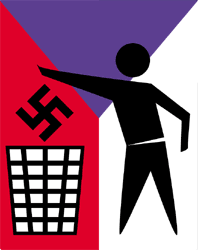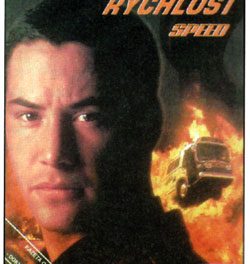Here are these people who in other ways seem so relaxed and open-minded – who allow teenagers to do heroin in the streets, for instance, and who have large advertisements for brothels on the public transport – but when it comes to their attitudes towards other peoples, they seem to us to be little more than small-minded Nazis, who would gladly see most of the non-Czech world wiped out in gas chambers.
There are reasons for this, though.
I am not saying that they are good reasons. I am not saying they offer any justification for these attitudes. But still, if we understand them, then at least our mystification might be somewhat reduced. To see what the difference is, let us look at racism in the West.
What this mostly relies on is the feeling that the evil foreigners who have come from far away have no right to be disrupting our societies. The French react to the Algerians living in France on this basis, for instance, as the English react to Pakistani and Bangla Deshi immigrants.
It is a little bit different in America, where the blacks are not foreigners in quite the same way, and of course America’s attitude to immigration generally is different, but at root it is still a European kind of racist response, as you see in attitudes towards Mexicans or Puerto Ricans. What are these people doing in our country?
The difference in the Czech Republic – and it is much the same in other countries of the region, even if the Czechs for some reason seem to find it more natural to be hate-filled provincial xenophobes than most of their neighbours – is that the people they single out for hatred are not immigrants who have been brought in from afar, but people who have lived side by side with them for hundreds of years.
Some don’t like black people, for instance, but they don’t actually get organised into gangs for the purpose of beating and killing them. The people they traditionally don’t like – the ones they are actually proud of not liking – are the Germans, the Jews and of course the Roma, along with Poles in border regions. It seems to be mainly a racist, white supremacist, anti-Romany sentiment on the surface, but that is mainly because the Germans have left and the Jews have been killed.
The peoples of Central Europe lived for centuries in conditions of close if unwanted proximity. In the Czech countryside there were villages where everyone was Czech (as there still are today), but in the cities, life was much more polycultural and polyglot. The thing was, though, that in these circumstances, the Czechs were by no means at the top of the pile.
Prague only became a predominantly Czech-speaking city in the 1870s. Before that, it was run in German (business, politics, diplomacy, etc.), and before that it was Latin that provided the lingua franca of the ruling class. But in the late 19th century, Prague suddenly expanded, as Czech peasants flooded into the city seeking industrial work, and the result was that the city changed into a mainly Czech environment.
Politically, the place was still dominated by the Austro-Hungarian monarchy, though, and a succession of Czech nationalist thinkers scratched their heads to find a suitable political ideology for resistance to this domination.
What they came up with was Czech pan-Slavism: a belief that overtly relied on brotherhood with the Poles, the Serbs and the Russians, but that in fact allowed the most simple-minded Bohemian bumpkin to feel superior to the Germans and Jews who so unfairly dominated the intellectual and business life in his country. There was a Slav song (Hej, Slovane!), a Slav hat you could buy, and plenty of good Slav beer to make sure it all seemed to make sense.
What this political movement did was to tell people that resenting the other people living in their country was not only good and right but actually their national duty. It is difficult to think of an exact parallel in the West, but perhaps the religious hatred that divides Northern Ireland comes close to it. If you are a proper Czech it is your duty to hate the people who have lived in your country for centuries. Your neighbours. Your school mates. Anyone who is different. Round them up and kill them! Hej Slovane!
This is the attitude of the man in the pub, of course. The intellectuals who wrote the nationalistic history books and works of philology that fuelled all this were a lot more bourgeois about it. But at heart it was a working-class revolution that they were feeding. In Germany, Hitler could harness a roughly similar sentiment and make it into an ideology of world domination that appealed to aristocrats and artisans alike.
The Czech nationalism had no such grand plans. Its pan-Slavism had no real political content, and saw no greater goal than removing non-Slavs (ie non-Czechs) from power in the Czech lands themselves. So now they are stuck with it. This is the uncomfortable truth. Vaclav Havel, to give an obvious example, is not a racist. He is a bourgeois intellectual, and thinks in terms of human rights, civil society, and all the rest of it. But what brought him to power was the support of the flag-waving masses, who have demonstrated pretty clearly over the last ten years how much they really care about human rights and such nonsense.
Masaryk, the First Republic President who also became a nationalist hero, had the same problem. He started out wanting to make a moral revolution (a religious revolution, in his case: he wanted the Czechs to become Unitarians), and soon found that he had become a symbol of victory over the foreigners. His government became an exercise in keeping the Jews and Germans down.
It is fortunate that the Czechs have joined the European Union, because the EU will not allow openly racist governments to join. So the Czech racist tradition has been driven underground to some extent. But the widespread tolerance, official and unofficial, of the years-long campaign of terror and intimidation being waged by the skinheads against the gypsies is ample proof that at street level, nothing much has changed.





